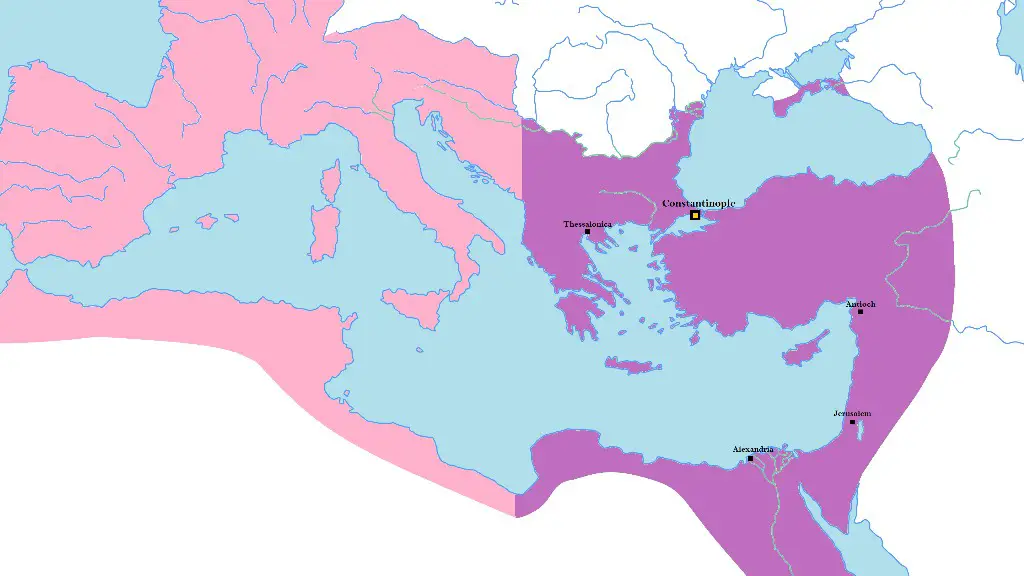Introduction
The Plague in Ancient Rome was one of the most fearsome diseases that plagued mankind during antiquity. It wreaked havoc, claimed countless lives and caused disruption everywhere it struck. In Rome, it was no different. In this article, we explore what spread the Plague in Ancient Rome. We learn about the possible causes and effects of the Plague and take a look at how it changed the course of Roman history. We also look at the opinions of experts on the matter, as well as insights into how the Plague may still be with us today.
Possible Causes
When the Plague struck, the Romans had no idea of what was causing it. They suspected a variety of things such as bad air, foul water, and even the gods punishing them for their sins. One of the more popular theories was that of Antonius Musa, a Roman doctor in the time of Emperor Augustus, who believed it was bad air that spread the disease.
However, his theory wasn’t enough to explain the spread of the Plague. Modern scientists have since determined that it was in fact the bacterium Yersinia Pestis, or bubonic plague, which was spread by infected fleas. These fleas were carried by small mammals, such as rats and mice, which were prevalent in Rome due to its large population. As the rats spread throughout the city, the plague spread with them.
Cultural Impact
The Plague not only had a great physical impact on the citizens of Rome, killing thousands of citizens, but also had a great psychological impact. It caused a great sense of fear and panic, as the citizens felt helpless in the face of such a powerful disease. This was especially true as people began to realize that it was not the gods punishing them, but rather a very real, and very dangerous, disease.
The Romans also believed that the Plague was punishment from the gods for their sins. This caused a huge shift in Roman culture, as citizens began to focus more on religious piety than ever before. This was reflected in the way that their art and literature shifted its focus to more spiritual themes.
Scientific Knowledge
In terms of scientific knowledge, the Romans didn’t have the same understanding of the Plague as we do now. They were not aware that it was a bacterial infection, nor did they know how it spread. Plus, they didn’t have the same level of medical care that we do today, making it extraordinarily difficult to treat the infected. This lack of knowledge, as well as the lack of medical care, meant that the Plague caused even more devastation than it would have if it had hit a more medically advanced society.
Experiences of Ancient Romans
Considering all of this, it’s not hard to imagine the shock and horror that the ancient Romans experienced when the Plague struck. Families, who until then had been happy and prosperous, were suddenly powerless and helpless as their family members were taken from them. People were left grieving, and entire communities were left to mourn their dead.
The experience must have been incredibly traumatic, as the ancient Romans had no way of understanding what was happening or how to prevent it from happening again. All they knew was that their lives and their livelihoods were in danger.
Impact on the Roman Empire
The Plague had a massive impact on the Roman Empire, bringing about its eventual collapse. The Plague killed so many of their citizens and soldiers that Rome was eventually unable to defend itself from invading armies. This, combined with the weakened economy, led to the downfall of the Roman Empire.
This is not to say that the Plague was the only factor responsible for the fall of the Roman Empire, as there were other external factors at play as well. But it is certain that the Plague undoubtedly played a role in weakening the Empire and contributed to its eventual downfall.
Modern Impact
The Plague may have died out centuries ago, but it lives on in modern society. The bacterium Yersinia Pestis is still present in many areas in the world, and rears its head from time to time. As such, it is important that we all take steps to prevent the spread of the Plague, whether it’s through proper hygiene or being aware of the symptoms and getting treatment if necessary.
Research on Plague
However, the Plague is not something that is widely researched in modern times. This is primarily due to the fact that it is not seen as a threat, and because modern medicine has advanced so much that it can treatment it more quickly and effectively than before.
Nevertheless, research and studies are still being conducted on the Plague to further our understanding of it. Researchers are looking into areas such as the origins of the Plague and how it spread, as well as the effects it had on past societies. With this research, scientists and historians can get a better understanding of the Plague and its impact on history, as well as develop better strategies to prevent its spread.
Efforts to Eradicate Plague
It is clear that the Plague still has an impact on modern society, and that it is important to be vigilant in preventing its spread. But the question is, what are we doing to eradicate the Plague?
Well, the good news is that due to advances in medicine and hygiene, the Plague is much less of a threat than it once was. However, it is still present in many parts of the world, and it is still important to take steps to prevent its spread. Governments around the world are making efforts to ensure that their citizens are taking proper precautions to prevent the spread of the Plague.
Education and Awareness
In addition to government efforts, it is important for citizens to be educated and aware of the Plague so that they can take the necessary steps to prevent its spread. This includes learning about the symptoms of the Plague, as well as taking proper hygiene measures such as washing hands regularly, wearing protective clothing and avoiding contact with rodents.
In addition to this, it is important to be aware of the history of the Plague, so that we can learn from the mistakes of past societies and make sure that we do not repeat them. Learning about the causes and effects of the Plague can also help us to better understand its potential dangers, as well as how to prevent its spread.
Treatment and Prevention
The Plague is a serious illness, and it is important to get treatment right away if any of its symptoms are present. Treatment usually involves antibiotics, and in some cases a combination of drugs is needed. In addition, preventive measures such as avoiding contact with rodents and fleas can also be taken. It is also important to practice good hygiene so that the disease does not spread to other people.
At the same time, it is important to remember that while the Plague was a great threat in the past, it is much less of a threat today due to advances in modern medicine. With proper education, prevention and treatment, the Plague can be successfully managed and prevented.
Conclusion
In conclusion, the Plague in Ancient Rome was a major turning point in Roman history and its effects are still felt to this day. The Plague was spread by the bacteria Yersinia Pestis, which was carried by rodents, and it caused a great deal of trauma, death and destruction. The Plague still affects modern society, and it is important that we remain aware of its effects and continue to take steps to prevent its spread.



